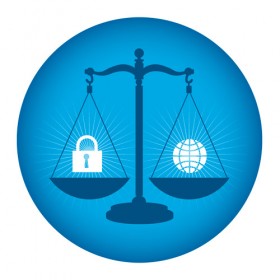Top tips from Mesmo Consultancy (and Associates) on how to save time and improve business and personal performance by ‘Taking Control of your Inbox’ and using proper business email etiquette.
Is it fair that an employer can read your personal emails? This is the question on many people’s lips after the European Court of Human Rights rejected an employees claims for unfair dismissal because he was using the company email account for personal use. You might think that this is not relevant to you as the company was based in Romania. Think again.
Company’s Email/Computer Usage policy usually have a line to the effect that you can make limited use of your work account for personal emails. The key word is ‘limited’. Moreover there is probably a line about the employer’s right to monitor your email and  internet usage if they have reasonable reason to do so. Most of us will have signed such a policy at some point in our life so unless you can prove that you neither saw the policy nor signed it, you probably don’t have a leg to stand on. Certainly judging by my archives which are littered with cases like these, rarely does the employee win. And why should they.
internet usage if they have reasonable reason to do so. Most of us will have signed such a policy at some point in our life so unless you can prove that you neither saw the policy nor signed it, you probably don’t have a leg to stand on. Certainly judging by my archives which are littered with cases like these, rarely does the employee win. And why should they.
Why do we think we can use precious company resources for our own use. In effect we are stealing the company’s bandwidth and storage. It’s akin to going to the stationary cupboard and taking pens and paper to take home for personal use.
Perhaps it’s time to remind ourselves that what we write on the company email belongs to the company.Check your email etiquette and and make sure you write email PEARLS not lead balloons which will land you in court.
P – PROPERLY laid out
E – Written in plain ENGLISH
A – Have an ACCURATE subject line
R– RELATE to work/business
L – LESS that half a screen
S – About a SINGLE topic
Yes, use the company email for emergencies, but do so sparingly. Otherwise as Banksy said ‘that invisibility is a superpower’. Keep you social emails to your personal devices and email accounts.
A resolution is a steadfast decision to do or not to take an action for cycle to work, be more of a team player etc. Once agreed there is no going back. Whereas a goal is about an effort to achieve either a specific result and ambition, for example, reduce your golf handicap, go home on time more often, change career. With a goal you may set some intermediate steps to help you achieve your goal such as improve your golf short game, manage your time more effectively etc.
We are always urged to set New Year’s Resolutions, yet how many of us find that within a week they are shattered and we crawl back into old habits? A better option is to set goals because they are more enduring and we can look back over time and can measure progress.
Reducing email overload should be a goal for everyone who care’s about their own and colleagues’ well-being and performance. Lets’s all work together to make 2016 the year we regain our perspective and work-life  balance through corporate reducing email overload.
balance through corporate reducing email overload.
Based on the many workshops and webinars run in 2015 here are seven goals for helping you and your business reduce email overload.
Setting goals like these you can allow yourself an occassional day’s relapses and yet still feel at the end of the week that you have made progress.
Meanwhile, if you need some more help in 2016 why not either call us about how our Brilliant Email workshops or just buy a copy of the ‘Brilliant Email‘?
Tags: 2016 resolutions, Brilliant Email, Corportate Email Overload, performance, well being
Technology is a great source of help over the Christmas period, for example shopping on-line, e-cards, looking up how to cook the turkey etc. However, there is a downside too, smart devices entice us to stay connected to the office even over the Christmas period when let’s face it many organisations are effectively shut for business.
Meanwhile, cyber-crime is not only increasing but taking on different forms. Rather like flu you find a vaccination for one strain and along comes another. In the case of cyber-crime it’s called Ransomware. The hackers tease you into downloading malware which locks down all your files. Then they demand a ransom to unlock the files. Here is an excellent article from Norton on dealing with Ransomware.
Here are five tips to help you relax and reduce the risk of email stress and a cyber-attack to either you or your business. The key is to disconnect (from both emails and work social media feeds).

Email connect or disconnect?
Never email under the influence of drink (before during or after Christmas) when your judgement and vision could be impaired.
If all else fails buy one of those magnificent colouring books and get colouring. It a great way to relax and re-connect with others (very young and old).
Tags: Clean Inbox, cyber crime, Disconnect, email stress, email subject line, Norton, Ransomware
A mixed bag including email etiquette, cyber security (as always), the changing face of the consumer experience and time management.
Do any of these topics raise warning bells for you and your organisation? Call us now to hear how we have helped organizations like yours tackle such challenges and improve productivity and well-being.
Tags: Articles of note, cyber crime, email etiquette, Productivity, well being
The forthcoming festive season is a great time to read and plan ahead for the new year. Here are five books which we cannot wait to get stuck into.

What’s on you reading list?
Tags: Amy Brann, Books of note, Christophe André., Diana Athill, Kathryn Hughes, Sherry Turkle